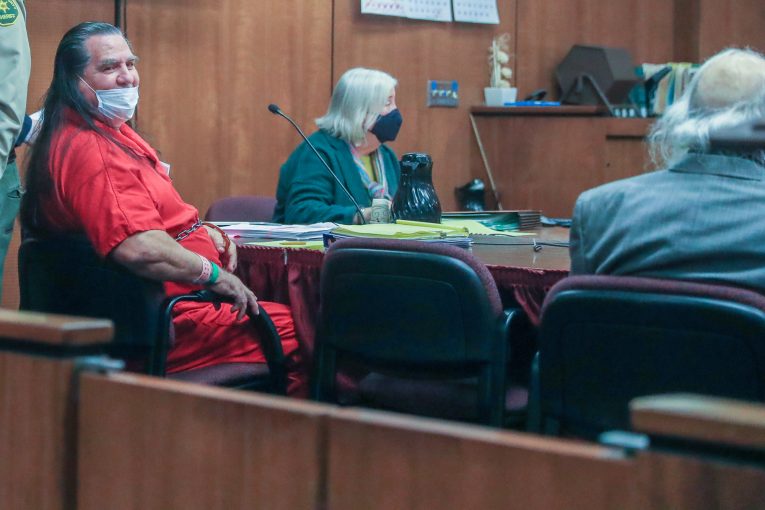
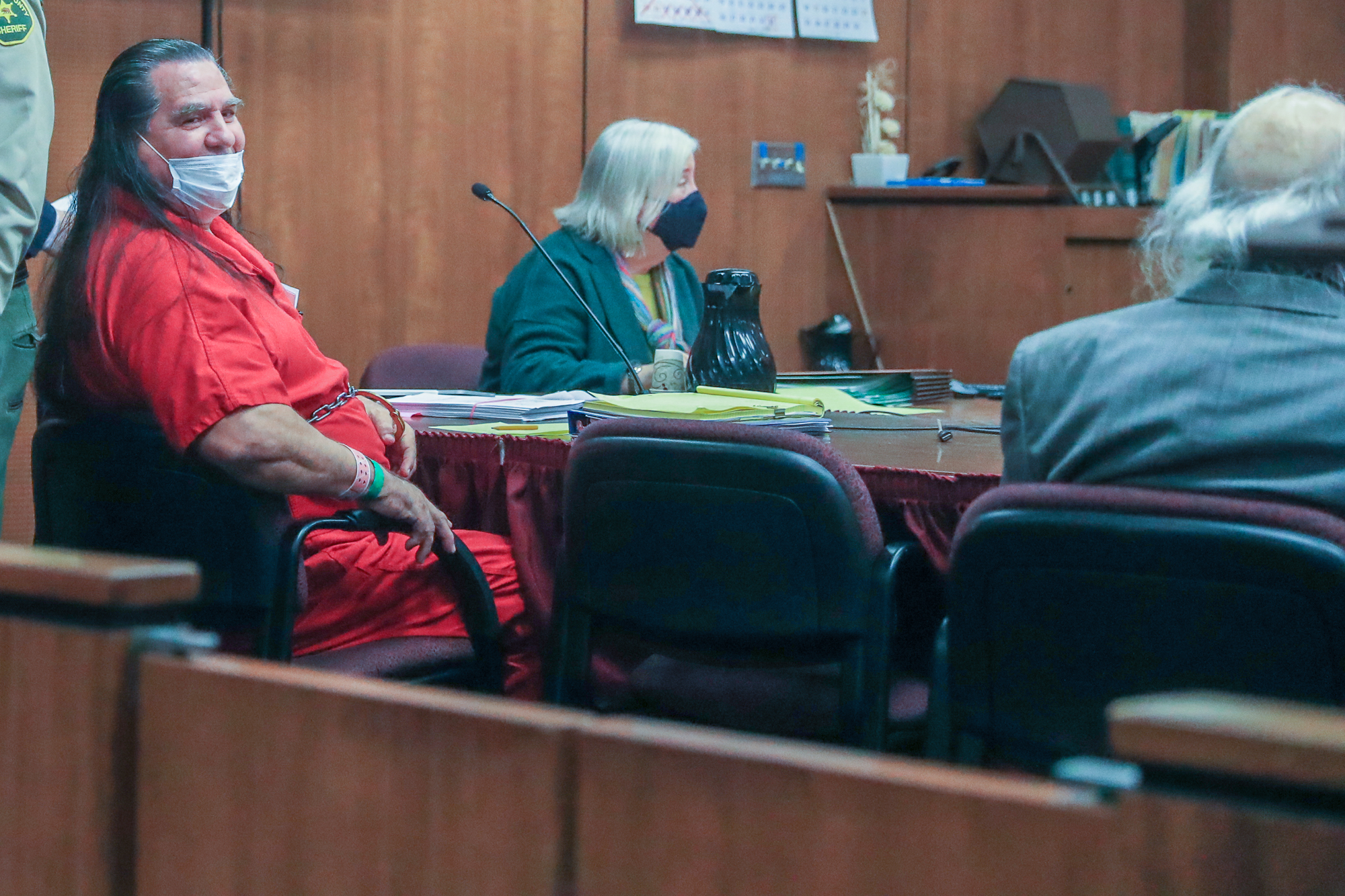
By David M. Greenwald
Executive Editor
Fresno, CA – The legendary 88-year-old attorney Tony Serra on Tuesday in Fresno Superior Court made an impassioned plea to free on OR his client, Douglas “Chief” Stankewitz, calling San Quentin, where Stankewitz has been housed since 1978, a “snake pit.” However, the most important part of the hearing was the judge signing an order to have the supposed murder weapon tested.
The investigator is hopeful of completing the testing by February 13. It is a key piece of evidence that the defense is hoping can be enough to potentially grant Stankewitz a new trial and lead to his freedom.
Most of the arguments on Thursday before Judge Arlan Harrell were technical.

Attorney Marshall Hammons sought to get eight key witnesses who are critical to the claims in the Habeas petition to be questioned on the record in a conditional examination.
Hammons argued that there is nothing in the law that would prevent this, adding that post-conviction discovery statutes are insufficient and that the nature of this case, with 45 years on death row by Stankewitz, necessitates preserving the evidence from aging witnesses.
“Their testimony is crucial to understanding of the evidence in this case,” he argued.
But Deputy DA Kelsey Peterson opposed the motion, arguing it was outside of the scope. A conditional examination would be based on information that was available at the time of the jury trial, and none of the claimed new evidence meets this burden.
She added that this would be “too broad” and the scope of what they are seeking is “pretty much a new trial.”
Hammons countered that the scope of the inquiry would not be “free range” and they have listed the relevance of each witness to their case.
“We have to make sure Mr. Stankewitz has his rights preserved,” Hammons told the judge, noting again the age of the case and the witnesses. He said he believed they could come up with a fair discovery scheme.
Meanwhile, Peterson argued for a motion for access to sealed Penal Code section 987.9 materials. She is requesting the information be unsealed in order for them to be able to evaluate claims of ineffective assistance of counsel which range from failures to interview key witnesses and investigate key claims.
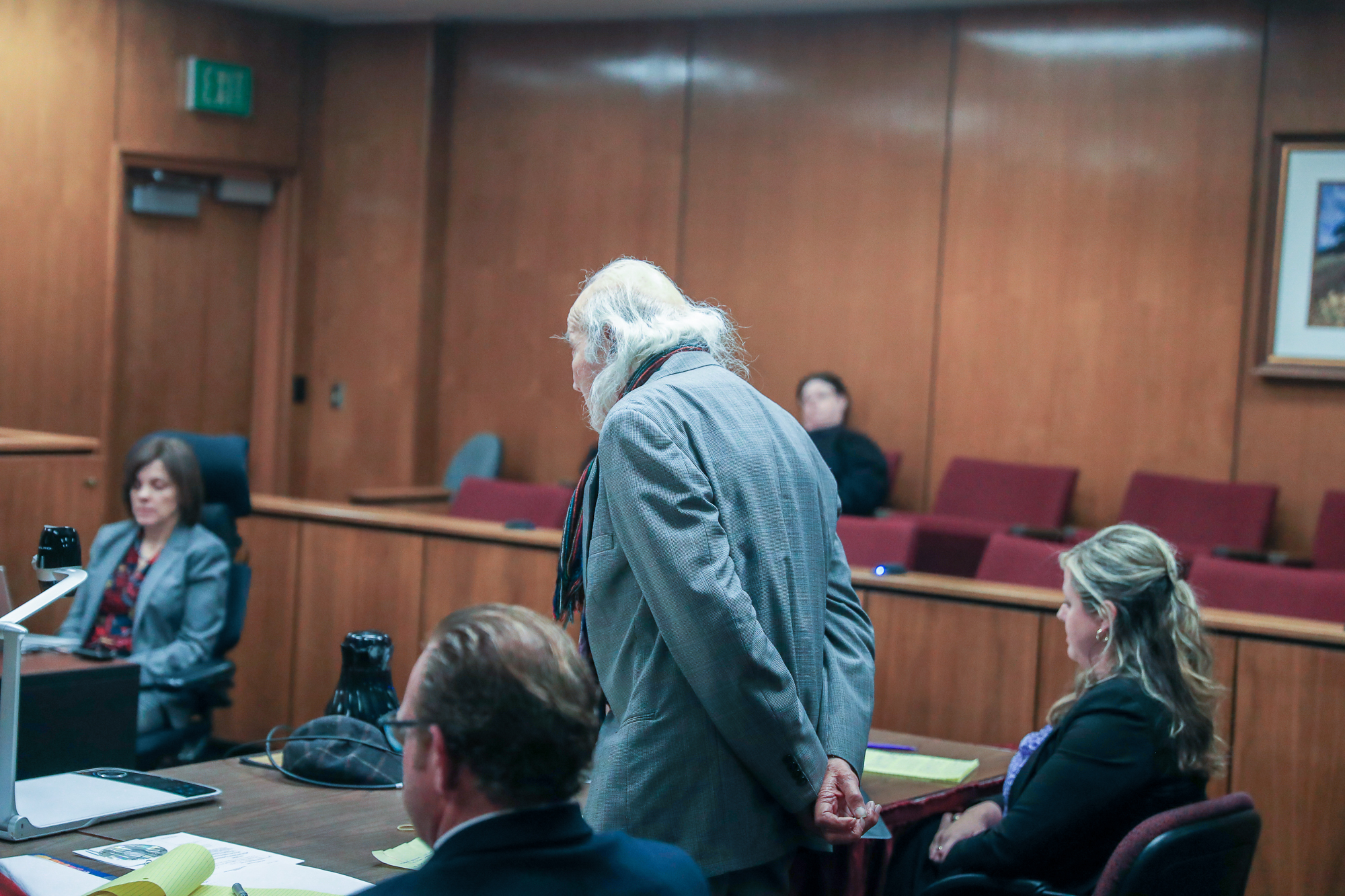
“Petitioner’s Habeas Petition raises allegations of ineffective assistance of counsel making the section 987.9 documents from his trial reasonably related to addressing the issues in his collateral challenge. These issues include, but are not necessarily limited to, allegations of ineffective assistance of counsel in Claim twelve and Claim thirteen of the b Habeas Petition which alleges a failure to investigate and prepare a defense (see Habeas Petn. at pp. 175-3185). Accordingly, access by the District Attorney to section 987.9 materials relating to guilt and penalty phase investigations is clearly warranted,” Peterson argued in a written motion.
In her arguments she noted that under Prop. 66, this should be transferred from the AG to the DA, since the DA’s office is now responsible for litigating such post-conviction claims now.
Curtis Briggs, arguing for Stankewitz, noted that there were two trials, but that “we have never raised ineffective assistance of counsel for the first trial because it was overturned in its entirety.”
He explained that there were questions about Stankewitz’s competency after the first trial, but when those issues were resolved, the second trial occurred, and they believe the second attorney failed to do his duties to Stankewitz.
Peterson added that the discovery has not changed since 1978, and believes that the transfer of the files to the second attorney should be something that the DA examines.
Briggs acknowledged that this was a valid request, but believes that the law requires the files to go to the AG and therefore that under the law, as currently written, the court cannot grant this motion.
Stealing the show was Tony Serra’s impassioned plea for release on OR—noting that Stankewitz has been incarcerated since he was 19 and he is now 65.
“For the last 20 years he has been a model prison,” Serra said, noting character letters from a chaplain, a Rabbi and even law enforcement.
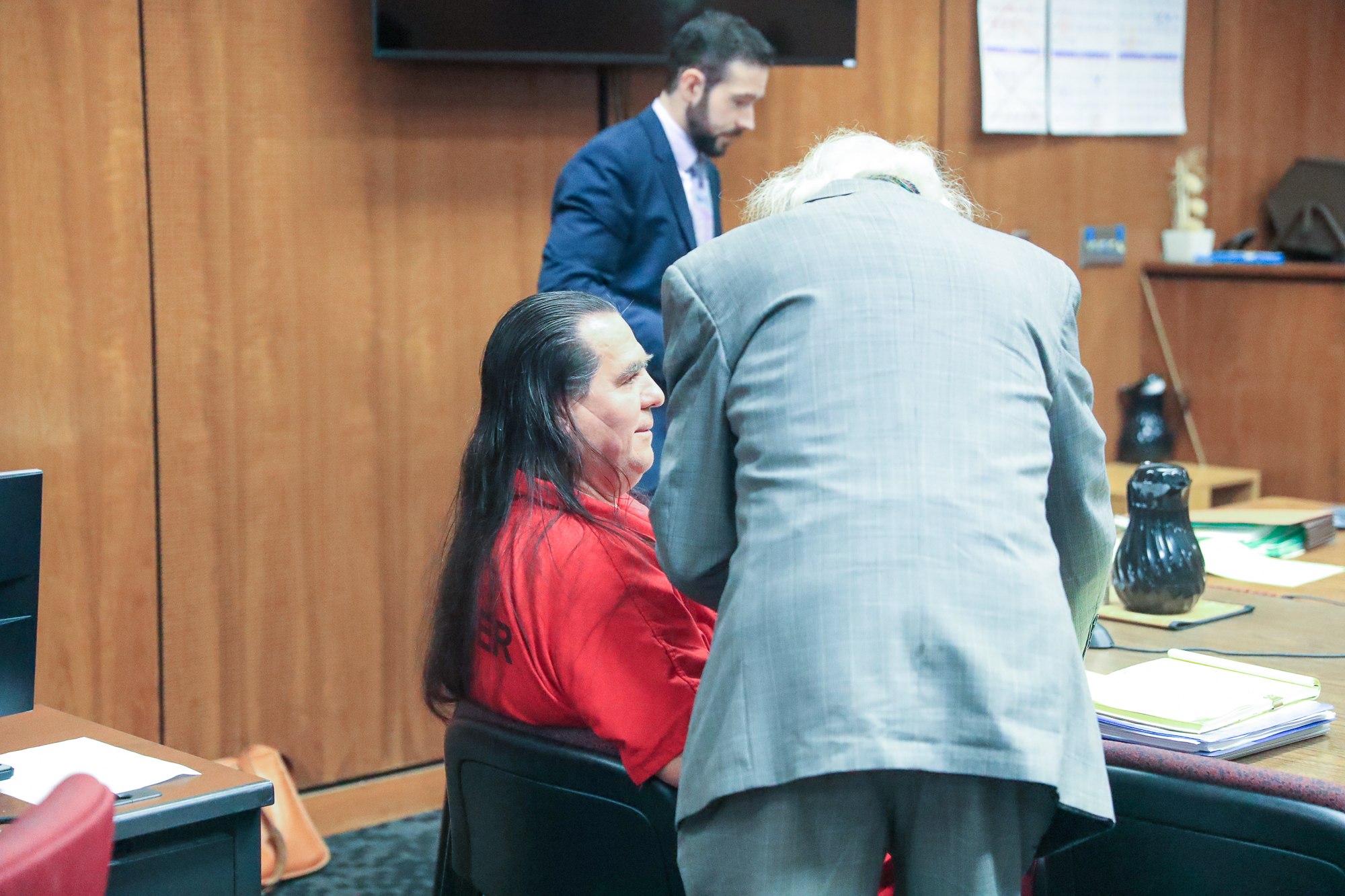
“We believe he is entitled to some relief,” he said, noting the changed circumstances “potentially arising from this court’s opinion.”
“If you look at the claims,” he said, “if anyone of the 16 habeas is granted, he’ll be free.
“My god, the gun issue allow will be granted,” he said.
Serra noted that he would have an ankle monitor, he would be confined to home except to work, which he has a job waiting for him at Marshall Hammons law firm.
The judge, while acknowledging this was a good opportunity, seemed skeptical, asking if there “has been a change in the law” since he last denied the OR motion.
Serra countered it was a change in circumstances.
“San Quentin is a snake pit,” Serra argued. “He’s a good person.”
He noted that this was “white man’s justice.” He said, “justice” means “just us,” as in not for native Americans.
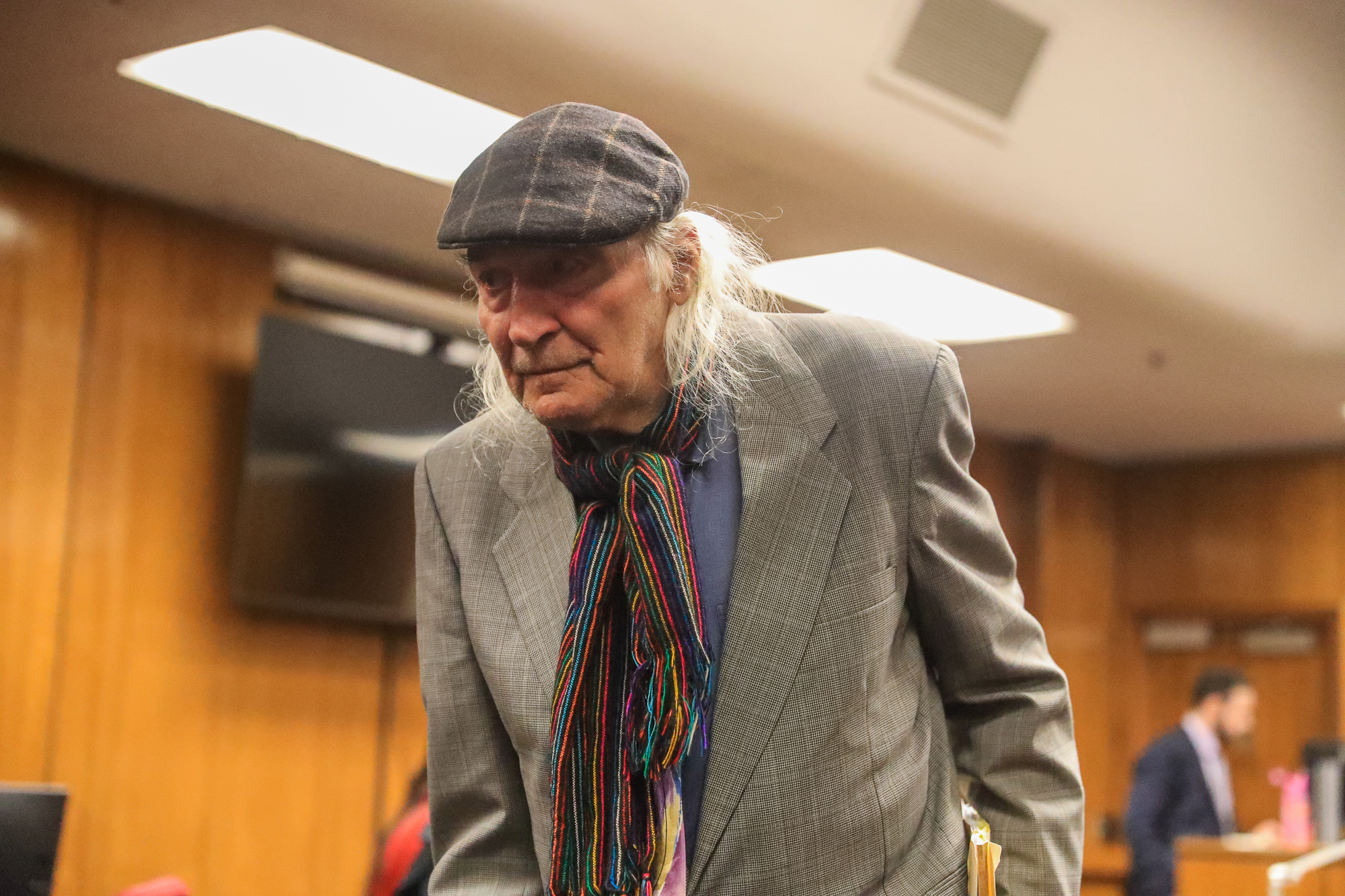
“Why send him back to the snake pit?” he asked. “He will not disappoint any of us.”
Peterson was not having it. She argued that there is no provision in California law that would allow a man convicted of capital murder with special circumstances to be OR’d. She does not believe there is a change of circumstances anyway, that this is just a hearing to determine whether there is a credible claim.
“He is not eligible under California law for OR,” she said. There has been no risk assessment and she believes defense voucher for the defendant represents a potential conflict of interest.
Curtis Briggs noted that there actually have been some changes in the law with respect to youthful offenders sentenced to LWOP that could grant him a chance at parole—something that could be taken up when they reconvene in May.
He pointed to a potential case, of which the judge seemed to take interest.
Judge Harrell deferred any judgment on the motions at this time.

